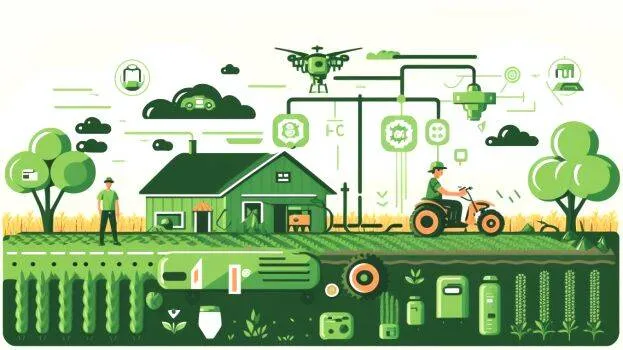

Agricultural growth is essential for the survival of any society. In the olden days, there was not a single village in Kerala that did not grow paddy. Now paddy farming is confined to only a few districts like Palakkad. No one can be blamed for that. Farming in small fields at present wages would result in nothing but loss to the farmer. Kerala could not transform agriculture with modern machinery at the right time. The situation in Kerala is such that it is easier and more profitable to buy rice from other states at a higher price. Not only rice but also a large portion of the vegetables we consume are brought from other states.
The health problems this causes are not minor. However, it is reassuring that the new generation is trying to grow vegetables out of interest. Agriculture in Kerala will improve only if there is a radical change from traditional methods in the agricultural sector. It requires smart farming practices. Helping to take a leap towards smart farming is the World Bank's approval of the 2390.86 crore 'Kera' project for agricultural modernization. The World Bank will provide a loan of Rs 1677.85 crore and the state share for the project is Rs 713.06 crore. The project will benefit five lakh farmers in Kerala. The duration of the project is five years. The report of our Special Correspondent MH Vishnu in this regard, which we published on the front page yesterday, says that the World Bank will release the money once the agreement is signed within a month.
Climate-resilient farming methods can be propagated through this project. Similarly, the farmers will also benefit from the technologies. Agriculture Minister P Prasad, Principal Secretary of the Department of Agriculture Dr B Ashok and other members of the team are to be commended for submitting the revised plan to procure this assistance. It is hoped that this project will help create a positive turning point in the agricultural history of Kerala. Although it is easy to start the scheme, the agriculture department, officials and farmers should pay special attention to avoid the failures of the past in its successful implementation.
The project will help increase investment in the agriculture sector and streamline supply chains. The project will be profitable only when value-added products are produced and more markets are found for them. The facilities of modern technology should also be utilized to connect the farmers with these markets. The project aims to improve irrigation and fertilization. Market interactions can be strengthened through 150 Farmers Producer Organizations. Also, 250 small and medium agri industries will get financial and technical assistance as part of the project. Finding better export markets can also attract new entrepreneurs to the agriculture sector.